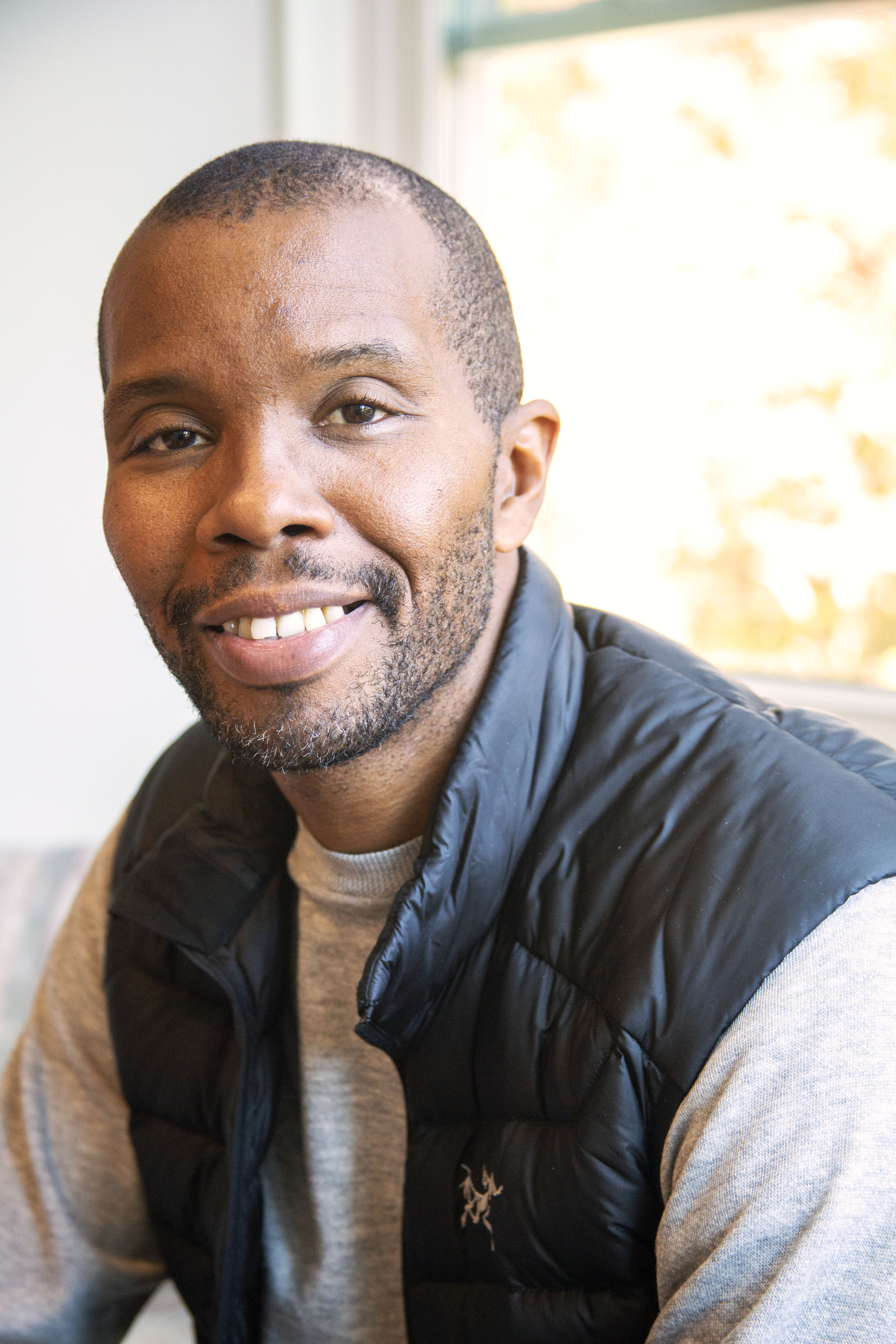Portfoilo

Finding spirituality and a community in the murder capital of the US
WASHINGTON ̶ For Nii-Odoi Glover, his period of investigation outside the Bahá'í faith was sparked by living in the “murder capital” of Washington, D.C., during the 1980s.
“Being 16 or 17-years-old and having a friend of yours get killed was something that kind of sparked my initial investigation into spirituality,” Glover said, as he glanced out the window of the Bahá'í Center of Washington. Dark storm clouds faded into sunlight.
He started studying the teachings of the Buddha. They helped him think about what his purpose was and to understand the environment he grew up in. “Buddhism is primarily about the self, and most pain comes from ego,” Glover said.
Then he looked to Prophet Muhammad and the Quran. Islam was very powerful for Glover because many of the teachings in Islam are connected to teachings in the Bahá'í faith. It was what led him back to the faith he grew up in.
The Bahá'í faith is one of the newest world religions to be founded in the 19th century. The two central figures, the Báb and Bahá'u'lláh, preached acceptance of all religions and all prophets as mouthpieces of God.
When growing up in the religion, it was hard for Glover to connect to the faith because most of the Bahá'ís were white or Iranian. “I grew up in a city where there was no reflection of the Bahá'í faith in my environment,” Glover said.
Jennifer Chapman, a member of the faith, said Glover has the “ability to memorize long passages of sacred writings, which he has recited during talks he’s given or during devotional gatherings. It is deeply inspiring to hear him recite beautiful passages.”
“Today this is your house, tomorrow it is someone else’s,” is Glover’s favorite passage from Bahá'í scriptures. It serves as a reminder that life is fleeting and that as humans are progressing from one world to the next.
He used the example that a baby in a mother’s womb is a world in and of itself. Like the mother's womb, Earth is a womb where people mature enough to live in the next world -- the spiritual world -- with God. Glover believes people can’t comprehend how much more expansive and diverse the next world is because there’s nothing like it in this world.
Glover serves on the organization’s local spiritual assembly for Montgomery County, Maryland. Nine members from the community are elected by secret ballot. When electing someone to the assembly, Bahá'ís look for people with a diverse group of socioeconomic, race and educational backgrounds.
One of the primary roles for a Bahá'í who serves on the assembly is to educate people about the Bahá'í faith and unify members from diverse backgrounds. “In the end, it’s about unity and diversity; faith cannot grow without diversity,” Glover said.
Sovaida Ma’ani Ewing, a Bahá'í with a bright personality and an equally bright sense of style said, “He’s able to be very frank and loving at the same time.” Ewing believes these are two very important qualities a Bahá'í must display when being elected into any level of the Spiritual Assembly.
Chapman said Glover “brings the invaluable perspective of one who is a lifelong resident and who has seen the changes, both positive and negative, in Washington. He is a deeply thoughtful man who brings so much to our community.”
One of Glover’s goals is to reach out to vulnerable communities in Washington because the city is becoming more gentrified and people are starting to become marginalized. “He continues to remind us how important it is to reach out to the African American community,” said Tod Ewing, friend of Glover.
During the day, Glover is a firefighter and emergency medical technician for the Brentwood neighborhood in Washington. “He’s out there risking his life every day to save people’s lives to make sure they get to safety,” said Jack Gordon, a member of the Bahá'í community. “In all aspects of his life, I think he is a very giving and loving person towards the community.”
Glover is also the manager of the Bahá'í Center of Washington. Along with that, he educates children and youth about the Bahá'í faith and focuses on how youth can impact their neighborhood through community service in Edgewood.
He has an 18-year-old daughter who is now exploring other faiths. Like Glover, she was raised as a Bahá'í and is encouraged to explore different options. The advice he would give to her is to “not look at religions as different, but as one, and to pray for guidance.”